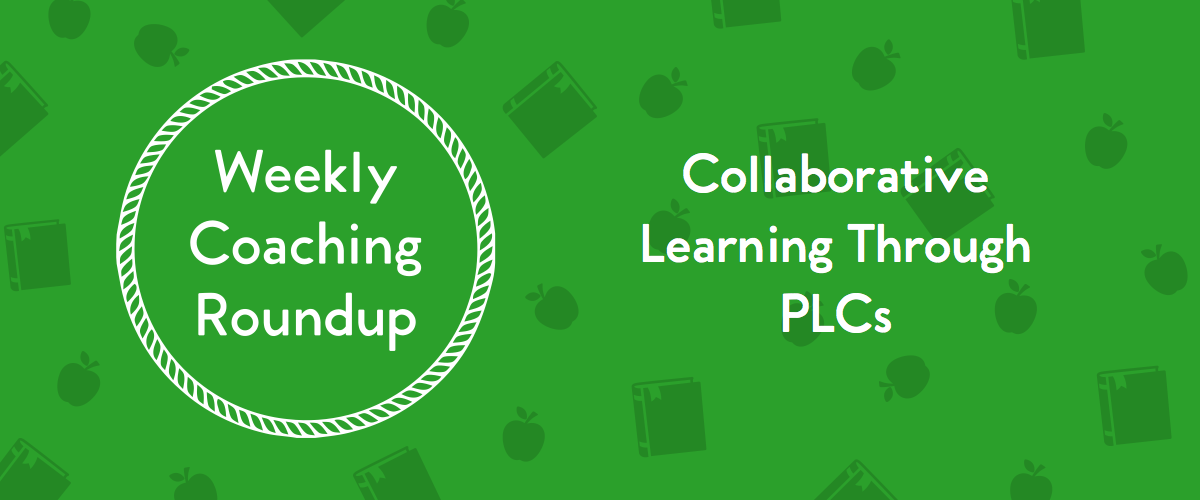


Welcome back to TeachBoost’s Coaching Roundup! Every month we like to mix it up a bit and focus on one specific topic. This month we’re talking about the power of PLCs, where coaches fit in, and how they can promote collaborative learning. Enjoy!
{{cta(‘1623fdae-2dee-4cee-a003-34270e4a47e4′,’justifycenter’)}}
Instructional Coaching PLCs in Action
Connie Rockow focuses on how and where to begin building your own network of professionals.
“If your school values student engagement then you all must be able to not only agree upon what student engagement is, but also upon what it looks like in action. The most effective way to do this is by engaging in learning opportunities together with your coaching and administrative team: looking at student learning together, talking about student learning together, grappling with identifying evidence that everyone can agree upon.”
How Instructional Coaches Can Support the PLC Process
Kay Haas explores how ICs fit into the PLC process with three different areas they can contribute and add value.
“Professional development, coaching cycles with action research, and resource brokering put the school-based coach at a unique vantage point for supporting professional learning communities. . . . The beauty of the PLC process grows from the idea of building collective efficacy. Both the individual member and the team will strengthen practice as a result of genuine and in-depth dialogue on student learning.”
The Case for Coaches in PLCs
Michelle Marrillia follows up on why coaches are important for collaboration in PLCs and how they can empower educators.
“The work of the coach keeps the focus on the performance of the team. . . . The leaders need to be equipped to be those effective initiators of change within the school and their team. Coaches can help to clearly articulate the why, what and how questions of the PLC and ensure that all team leaders are prepared to lead the work.”
Why Should Classroom Teachers Care About PLCs?
William Ferriter explains how meaningful collaboration through PLCs is important for the professional growth of teachers and staff.
“When a school or a district commits to restructuring as a PLC, what they are REALLY saying to their classroom teachers is, ‘We believe in YOU. We believe that the answer to improving learning in our community rests in the hearts and the minds of the people sitting in THIS room. It’s YOUR knowledge and skill that we are willing to invest in. We want to empower YOU to find solutions to the challenges that are keeping our kids from becoming their best academic, social, and emotional selves.'”
Coaches and PLCs
Steve Barkley also speaks to the coach’s role in PLCs and how they’re vital to establishing a team culture among staff.
“Coaches can impact teaching using PLC conversations to establish follow-up classroom observation and feedback. Whatever change the PLC is working to achieve in student achievement sets the stage for observation of connected teacher and student behaviors.”
{{cta(’34b13594-505a-497a-8a75-16ae35acf14d’)}}
Have some interesting instructional leadership news?
Share it with TeachBoost and we’ll highlight it here!
Stay Connected
News, articles, and tips for meeting your district’s goals—delivered to your inbox.








